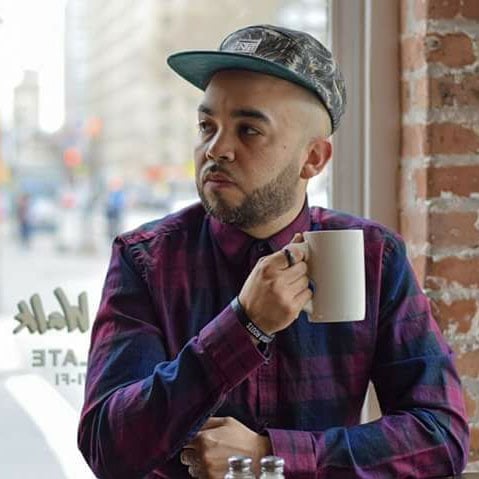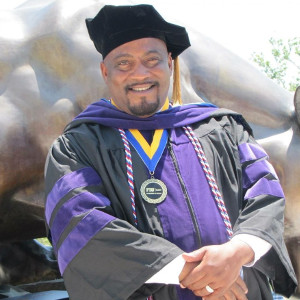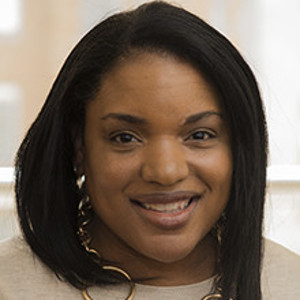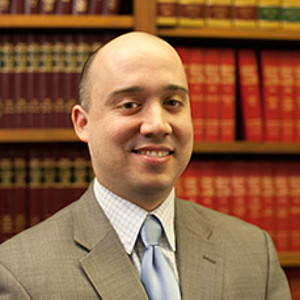Convinced he was at his wit’s end, he headed for the train station and decided to wait for an oncoming locomotive to end it all.
He waited…and waited.
Suddenly, as Meade was at his lowest point, a miracle happened.
The train never came.
Meade’s life was spared. In that instant, everything changed. He bounded across the tracks and checked himself into a drug rehabilitation center.
Fast-forward four months, and Meade was out of rehab and living in a shelter. That’s where he decided to enroll at a local community college in South Florida. Then came law school, and finally a doctorate degree from Florida International University College of Law.
Meade is a model example of how someone can serve time behind bars, lose all hope, yet persevere and fulfill his dreams, however belated. He’s a taxpayer, an upstanding member of society, and the executive director of the nonprofit Florida Rights Restoration Coalition. The group advocates for the abolition of disenfranchisement laws that prevent former felons from voting—laws that disproportionately affect African Americans.
The sad irony: Meade is also fighting to reclaim his own right to vote, which was stripped away when he was convicted on felony drug charges years ago. Meade has a lot of company in this quest. Florida is home to a quarter (1.68 million) of the 6 million U.S. citizens nationwide barred from voting due to a felony conviction, which amounts to a civil death penalty, critics of such laws charge. Florida and three other states (Iowa, Kentucky and Virginia) permanently disenfranchise their citizens after a felony conviction. Such policies vary across the country. Only two states—Maine and Vermont—allow felons to vote no matter their circumstances, even while serving their sentences.
State governments have broad authority to enforce voting laws however they see fit. In Texas, for example, ex-felons can retain their voting rights after they complete parole—a process that could take years. Seventeen other states also restore voting rights to parolees. New York, a presumed liberal oasis, only recently adopted such relief this year. In June, Gov. Andrew Cuomo, a Democrat, pardoned more than 24,000 people currently on parole, effectively restoring their rights to vote.
“The right to vote is fundamental and it is unconscionable to deny that basic right of citizenship to New Yorkers who have paid their debt to society,” said Cuomo, who is vying for a third term but has been confronted with a tough primary challenge from Cynthia Nixon, an actress-turned-progressive gubernatorial hopeful.
Meade is front and center in the fight to overturn Florida’s Jim Crow-era felony disenfranchisement laws. He helped successfully spearhead a petition for a ballot initiative this November, in which Florida’s residents will decide whether they want to amend the state’s constitution to largely eliminate felony disenfranchisement in most cases.
Public support appears to be on his side. A Quinnipiac University poll found that Florida voters overwhelmingly support restoring voting rights to convicted felons by a margin of 67 to 27. In an era characterized by tribal politics and deep partisanship, a majority of both Florida Democrats and Republicans favor changing the state’s laws.
“Once released, former prisoners enter a hidden underworld of legalized discrimination and permanent social exclusion.”
– Michelle Alexander, “The New Jim Crow”
Under Florida’s Republican Gov. Rick Scott, less than 5,000 people with a felony conviction have had voting rights restored under a clemency process he pushed through after only a month after taking office. That stands in stark contrast to the 155,315 people who automatically had their rights restored under Scott’s predecessor, Charlie Crist, in only four years.
According to the Miami Herlad, Florida’s system of mostly denying released offenders has cost the state $385 million a year.
Scott engineered the state’s current system, which requires former felons wait at least five years before they can formally apply to the clemency board, plus an additional 10 years before the board possibly agrees to a hearing. Even if someone is fortunate to clear that hurdle, their application could be rejected for an infraction as benign as a parking ticket, or for no reason at all. In reaching its decision, the board also may factor in drug or alcohol use, employment status, and the applicant’s perceived level of remorse. If their petition is rejected, the applicant has to wait two years before re-applying.
U.S. District Court Judge Mark Walker likened Florida’s arbitrary process to locking away someone’s voting rights in a “dark crypt” and swallowing the key.
“Only when the state has digested and passed that key in the unforeseeable future—maybe in five years, maybe in 50—along with the possibility of some virus-laden stew of viewpoint discrimination and partisan, religious, or racial bias, does the state in an ‘act of mercy,’ unlock the former felon’s voting rights from its hiding,” Walker wrote in his decision.
Case in point: Meade himself. He has been out of prison for 17 years, but is still not guaranteed a hearing.
In a blistering rebuke to Florida’s system, Walker, a federal judge, decried it as unconstitutional.
“To vote again, disenfranchised citizens must kowtow before a panel of high-level government officials over which Florida’s governor has absolute veto authority. No standards guide the panel,” he wrote in his January decision, according to The Tampa Bay Times. “Its members alone must be satisfied that these citizens deserve restoration… The question now is whether such a system passes constitutional muster. It does not.”
Meade believes the current system is untenable. That’s why advocacy groups like his are bypassing lawmakers altogether and putting the fate of the state’s disenfranchisement laws in the hands of their fellow Floridians.
“We knew that leaving it in the hands of politicians was a waste of time, because they’re just gonna just kick this issue down the road,” Meade said. “And that’s what’s been happening.”
With Florida being a key swing state in presidential elections, there’s the inevitable speculation about what would’ve happened in 2000 when the closely contested race between Al Gore and George W. Bush forced a recount. Similarly, there’s constant discussion about what an additional 1.7 million voters would mean for general elections going forward.
How the electoral map may change if disenfranchised voters are added to the rolls is irrelevant, Meade says. He’s not at all interested in political prognostication and refuses to speculate about how either of the major parties will adjust their strategy if indeed November’s vote swings in his favor.
“At the heart of it, it’s about forgiveness, redemption and restoration,” Meade said.
Jim Crow Lives
There was a time when only white men could vote. It took 184 years for the nation to extend voting participation to all people. Even now, states across the country are advocating for voter ID laws ostensibly to eliminate voter fraud. Opponents argue voter fraud is a manufactured issue masquerading as an attempt to make it more difficult for minorities to vote. Indeed, The Washington Post discovered only 31 “credible” cases of impersonation fraud from 2000 to 2014 and found only four cases of voter impersonation in the 2016 election.
Only recently the Supreme Court upheld a controversial ruling that gives Ohio officials extraordinary powers to remove residents from the rolls who don’t vote for two election cycles or fail to return a form confirming their address.
Three years ago, the Supreme Court dealt a severe blow to the landmark Voting Rights Act of 1965, a seminal moment in the civil rights movement, when it struck down a key provision that prevented jurisdictions from imposing discriminatory voting laws.
Fifty years after a young Rev. Martin Luther King’s impassioned “Give Us the Ballot” speech, the struggle for full participation continues.
Disenfranchisement laws are among the oldest forms of voter suppression in the country. It’s also one of the rare barriers to voting that intersects with America’s broken criminal justice system—a system that disproportionately incarcerates black and brown citizens at higher rates than whites. As the country’s prison population soared beginning in the ’70s, with the rekindling of the racist war on drugs, so to has the number of disenfranchised voters.
“We are in an era where there are unfortunately a lot of laws being passed that restrict the right to vote in various ways that are aimed at voter suppression, that are purporting to do good things or fight against things like voter fraud,” said Sean Morales-Doyle, Counsel in Democracy Program at the Brennan Center for Justice, NYU School of Law.
“These felony disenfranchisement laws are an example of that,” he added. “They are much older than many of these other laws that we talk about.”
The marrying of felony convictions with voting rights goes back to the period of Reconstruction, when former slave-holding whites shuddered at the thought of African Americans making gains in society.
In an exhaustive report published in the American Journal of Sociology in 2003, professors at Northwestern University and University of Minnesota, noted that several felon voting bans began after the Civil War “when implementation of the Fifteenth Amendment and its extension of voting rights to African-Americans were ardently contested.”
“[N]o other contemporary democracy disenfranchises felons to the same extent, or in the same manner, as the United States,” the report noted.
The 14th amendment indeed made black men legal citizens, but they were prohibited from voting until the 15th Amendment was ratified in 1870. The latter famously includes a key clause that makes it legal for states to strip people of their ability to vote for participating in “rebellion, or other crime.”
For former slaves, the blowback to the Union victory was fierce.
As Michelle Alexander writes in her acclaimed best-seller, “The New Jim Crow,” officials in the South instituted so-called “Black Codes” and adopted vagrancy laws that disproportionately impacted blacks because it effectively criminalized unemployment.
“As African Americans obtained political power and began the long march toward greater social and economic equality, whites reacted with panic and outrage,” Alexander writes.
While disenfranchisement laws date back to early colonial times and were largely inspired by Europeans, the American Journal of Sociology report notes they were less sweeping, in terms of what crimes resulted in outright voting bans.
“In the constitutional history of several states around this country, the record is clear that colonists, white elites in those state conventions, created voting exclusion for residents with the idea of intentionally trying to exclude residents of color, including black men,” says Nicole Porter, director of advocacy for the nonprofit Sentencing Project, which advocates for prison reform.
Among the states that selectively adopted felonies skewed toward racial lines was Alabama, Porter says.
“People convicted of homicide in the state of Alabama when that state was first founded…never lost their right to vote, yet individuals convicted of robbery offenses did,” she explains. “The constitutional record is clear that local elites, state elites, devised voting schemes that excluded residents from the rolls when they assumed that the people committing certain felony offenses were black.”
Aside from the racialized enforcement, Porter also opposes disenfranchisement laws on the premise that a prison sentence for a criminal offense is the punishment. Collateral consequences, such as revoking someone’s right to vote, is fundamentally wrong, she says.
“Residents, even those behind prison walls, are human,” continues Porter. “And they are community residents and they deserve to participate in governance, particularly since laws and policies impact their day-to-day lives.
“The idea that states would exclude individuals from voter participation is unacceptable and undemocratic,” she adds.
Or as Alexander put it in “The New Jim Crow”: “Once released, former prisoners enter a hidden underworld of legalized discrimination and permanent social exclusion.”
The 6 Million
The United States currently counts more people who can’t vote due to a felony conviction than the entire populations of several Scandinavian countries.
Of those currently barred from casting a ballot, one in 13 are black, according to The Sentencing Project. The numbers are more astonishing at the state level. In Mississippi, for instance, one in five black voters are disenfranchised.
The growth of the prison population over the last four decades has dramatically increased the number of people barred from voting.
According to The Sentencing Project, only a single state, Alabama, had disenfranchised more than 4 percent of its population in 1980, compared to seven in 2016.
Despite the staggering numbers of people unable to vote, momentum appears to be on the side of voting rights activists calling for dramatic change.
In the last few years, Maryland and Virginia collectively restored voting rights to more than 200,000 people. Cuomo’s executive order this year resulted in an estimated 24,000 added back to the rolls.
Change could be coming to Florida, too.
Activists in “The Sunshine State” received more than the necessary 799,000 signatures to force a ballot initiative this November, so residents can vote on a state constitutional amendment to restore voting rights for those convicted of a felony. The amendment excludes those convicted of murder or felony sexual offenses, such as rape and child molestation.
While enthusiasm is high among voting rights advocates, Porter points to Vermont and Maine, the only two states that place no such voting restrictions, as models for the rest of the nation.
David Zuckerman is the lieutenant governor of Vermont. He considers felony disenfranchisement laws a travesty of justice. That such laws disproportionately affect African Americans only exacerbates the country’s criminal justice problem, he said.
“We are already punishing people for their crimes, sometimes appropriately, sometimes inappropriately. Those are debatable points,” Zuckerman told News Beat. “But if you’re incarcerated in a prison, you are paying plenty of penalty, you should not have your voice, your First Amendment voice and your right to vote taken away.”
Not only is the revoking of someone’s ability to have a say in who represents them at any level of government unfair, says Porter, but it actually does a disservice by disempowering them once they’re free.
“Voting, living wage employment, reunifying with family and other social networks, is all a part of…a characteristic of behavior that can help someone to reintegrate back into the community,” Porter says, adding that it also plays a role in lower recidivism rates.
That was the exact conclusion of a Florida Parole Commission study released in 2011. The commission found the recidivism rate for released felons who had their voting rights restored was 11 percent, compared to 33 percent for those who remained disenfranchised.
“The idea that states would exclude individuals from voter participation is unacceptable and undemocratic.”
– Nicole Porter, The Sentencing Project
The Brennan Center’s Morales-Doyle said taking voting rights away from people undermines the entire meaning of citizenship.
“It sends a message that people aren’t really welcome in their community,” he says. “It sends a message that their participation isn’t wanted. And that is bad both in terms [of] the best practices for our criminal justice system and welcoming people back into our communities, and hoping they reintegrate into the community.”
Meade’s inability to vote especially hit home last year, when his wife campaigned for local office. His was one vote she couldn’t count on.
He’s made restoring voting rights his mission, and he’s cautiously bracing for the opportunity to be able to cast a ballot once again.
“I know it’s going to be a powerful moment, because as an American citizen, like I said, nothing speaks more to citizenship than having that opportunity,” he says. “And for someone who has lost it and has been yearning for it for quite a number of years, to be able to get it back, I know it’s going to be a very emotional time.”
Stay tuned.










